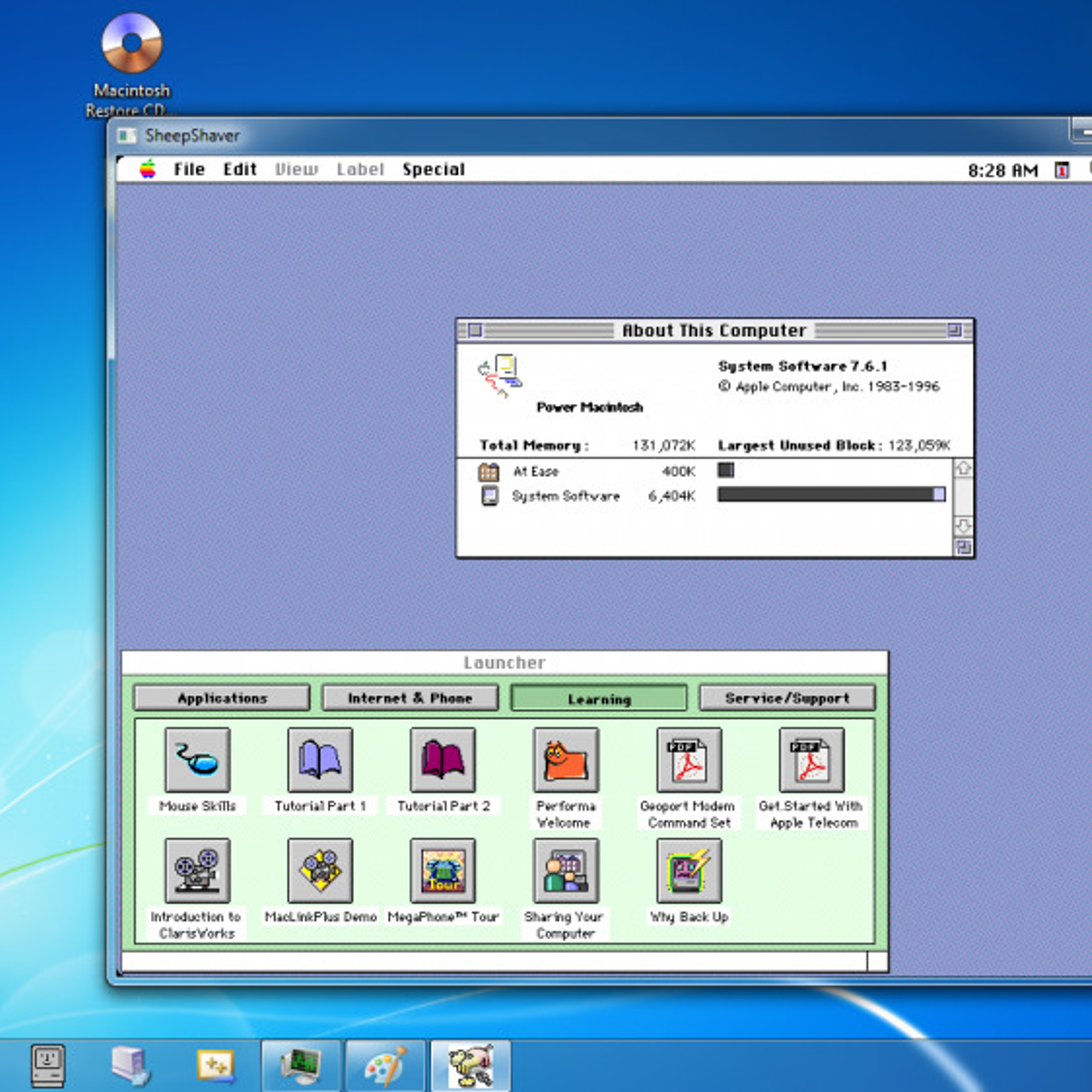Shoebill Mac Emulator

Creative destruction game pc. Apr 16, 2017 - I did the initial work of porting this emulator to the browser (most. And with shoebill[1] you can run A/UX, Apple's Unix with a MacOS GUI. A Macintosh II emulator that runs A/UX. Contribute to pruten/shoebill development by creating an account on GitHub.
I did the initial work of porting this emulator to the browser (most credit should go to the original emulator author however: ). I wrote up the process and hacks that went in to making this possible here: The most gross/fun part was how I made the Mac OS mouse position align with your real mouse cursor: by writing its position directly to the emulated computer's memory. Classic Mac OS held the mouse position in a few fixed global memory locations. I realised I could just write to those memory locations every few CPU cycles. I could have instead written a driver which ran inside the emulated OS to communicate with the emulator program, but this was simpler!
If I remember correctly (disclaimer: it's been a while since I read about this, and IANAL), they don't get permission in advance, but rather take steps to make themselves harder to attack legally. There are two prongs to the strategy: 1) Disable access to works upon request, but only after challenging the requesting party to substantiate the claim that they represent the actual copyright owner. Apparently, a whole goddamn lot of copyrights have hazy ownership thanks to corporate mergers/dissolutions/reorganizations being messy, but the claimed owners are rarely called on it. I suppose the implicit promise is that IA would demand the same in a lawsuit. 2) Only allow access to some works via 'streaming', e.g. Running a game in an in-browser emulator at archive.org but not providing download links. Of course a technically savvy user can retrieve the underlying files, but this purportedly puts it under the legal framework of 'broadcasting' rather than 'copying', which is supposed to somehow limit legal remedies available to copyright owners.
More generally, the Internet Archive does a bunch of things that make it harder/uninteresting to pursue for copyright issues. 1.) That you list is a big one. With respect to websites, the ability to change robots.txt goes a long way toward creating an assumption of ownership even retroactively.
2.) The IA is non-commercial. 3.) The IA doesn't have deep pockets. Add it all up and although much of what the IA does archive is in a pretty murky legal area, the fact that it's willing to take most things down and that there isn't a big payday to be gained from suing them, leaves them mostly free to do what they do. > Following deliberation, the Copyright Office ruled in late October 2003 that four exemptions should be added to the anti-circumvention clause of the DMCA, to be valid until the next Copyright Office rulemaking in 2006, including two that are related to the Internet Archive's original comments: [.] It's past 2006 now. This text seems outdated. Furthermore, it states: > In 2003 the Internet Archive, as part of research into vintage software archiving, discovered possible archiving issues involving the Digital Millenium Copyright Act. This could make it impossible to legally archive early computer software and games, even for accredited institutions wishing to store limited amounts of non-distributable, archival images.
I don't believe we're looking at 'non-distributable archival images' here. DMCA exemptions are for the additional restrictions imposed by the DMCA on circumventing 'access controls', i.e. DRM, even for otherwise noninfringing purposes. This is separate from plain old copyright infringement, i.e.
Making/distributing copies without permission: that has certain exemptions baked into the law, including fair use, but isn't subject to the periodic Library of Congress rulemaking. In this case, archive.org is distributing copies of the software to everyone's browser, and I don't think there's any plausible case that it's fair use or that any of the other exemptions apply. I'd expect it to count as infringing in most non-US jurisdictions as well, though probably not all. In practice, though, even if Apple decides to do something about this (unlikely), they'll probably just send a takedown notice rather than actually sue the Internet Archive. I'd call it a calculated risk on the Archive's part.
The Amiga world is massively more copyright-happy than e.g. There was a legal dispute around OS 4 MorphOS, the popular AmigaOS clone, is also proprietary and 'the price is 79 EUR for one laptop or desktop computer' (lol that's more expensive than an iBook G4 you can run it on) The accepted way to run emulators is ($$$), using pirated ROMs is very discouraged by the community. Aminet only hosts freeware/shareware/FOSS!